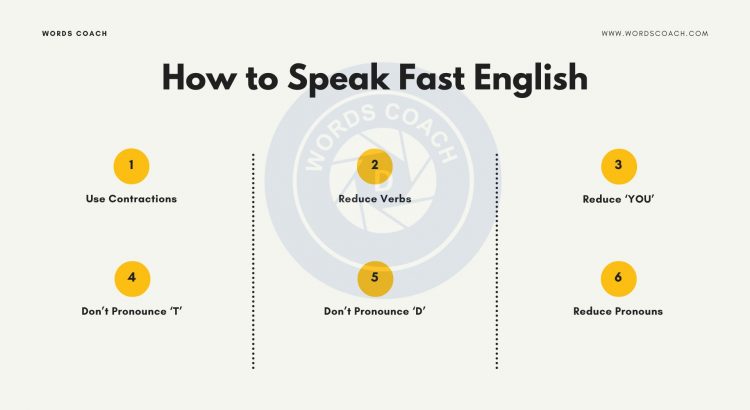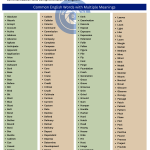1. Use Contractions
We use contractions (You’re, he’s, I’m) in everyday speech and informal writing.
Here is a useful list of the most common contractions in English.
- aren’t – are not
- can’t – cannot
- couldn’t – could not
- didn’t – did not
- hasn’t – has not
- haven’t – have not
- isn’t – is not
- mustn’t – must not
- shouldn’t – should not
- wasn’t – was not
- won’t – will not
- wouldn’t – would not
2. Reduce Verbs
Reduce these four popular verbs:
- going to → gonna
- want to → wanna
- have got to → gotta
- have to → hafta
Examples:
- I wanna learn English.
- I gotta learn English.
3. Reduce ‘YOU’
These three question words reduce in a different way.
First word: What?
– What are you doing? → Whatcha doin’?
Second word: Where?
– Where are you going? → Whereya goin’?
Third word: Would
– Would you help me? → Wouldja help me?
- What do you think? → Whaddyu think?
- I have got to go. → I’ve gotta go.
- What did you do with it? → Whajoo do with it?
- I have got a book. → I’ve gotta book.
- How did you like it? → Howja like it?
- Do you want to dance? → Wanna dance?
- When did you get it? → When ju geddit?
- Do you want a banana? → Wanna banana?
- Why did you take it? → Whyju tay kit?
- Let me in. → Lemme in.
- How is it going? → Howzit going?
- Not yet. → Na chet.
- I should have told you. → I shoulda told you.
- I’ll meet you later. → I’ll meechu layder.
4. Don’t Pronounce ‘T’
Another fast speaking English tip is to cutt of the ‘T’ at the end of words.
– We go out every night → We go ou’ every nigh’
5. Don’t Pronounce ‘D’
Just don’t pronounce the letter ‘D’ at the end of words.
– I found blue and yellow shoes → I foun’ blue an’ yellow shoes.
6. Reduce Pronouns
You can reduce some pronouns as you are speaking English. We hear this a lot in daily conversations.
– Maybe he is right → Maybe ‘e is righ’
– It’s his turn → It’s ‘is turn.
– It’s her turn → It ‘er turn.
– Don’t listen to them → Don’t listen to ’em






